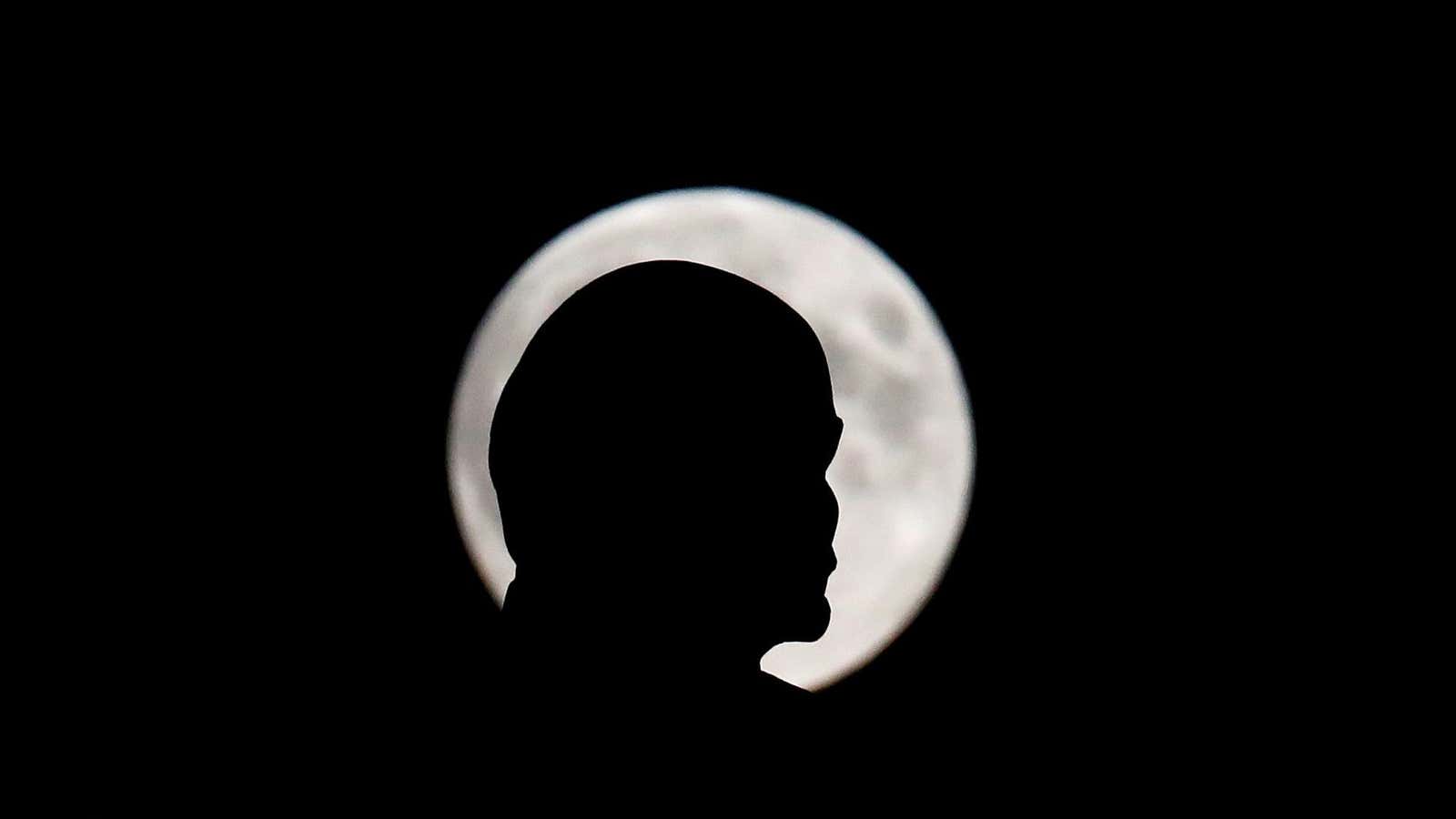The moon gloriously graces the Earth with an appearance every night, yet it’s only natural to get a little feverish about once-in-a-lifetime events like longest lunar eclipse of this century.
And that’s about it for what we can document about the moon’s effect on us.
For centuries in medical history, though, physicians believed a large rock some 238,855 miles (384,400 km) away could affect our health and behavior. More than 2,000 years ago, scientists came to understand that the moon influences ocean tides. That led early scientists to extend the idea to the human body. The thinking was that because the human body is mostly water, like the oceans, the moon must be able to exert a force on us, Syndee McElroy, a physician in Huntington, West Virginia, explains in a 2017 episode of the podcast Sawbones (listen in around the four-minute mark).
Where this lunacy comes from
Hippocrates, who lived in fourth-century BC Greece, was one of the first physicians to bring the “importance” of the moon (and other celestial bodies) into medicine. Purportedly, he once said “a physician without knowledge of astrology has no right to call himself a physician.” Roughly 300 years later in Italy, Pliny the Elder, the prolific scientist and author of the first encyclopedia, referred to the brain as the “moistest” organ in the body, according to Scientific American. The thinking was that if the moon—specifically the full moon, like the one we have tonight (July 27)—could affect waters in the body, it would most affect the brain, and therefore our behavior.
As such, full moons became the suspected cause for mental illnesses, though at the time they were poorly understood. That’s why the words “lunacy” and “lunatic” are related to the Roman goddess of the moon, Luna. The activities of mythical monsters like vampires and werewolves were also pegged to the moon.
Official beliefs that the moon exacerbated erratic behavior carried all the way through until 18th century. In certain towns in England, for example, you could ask for a lesser sentence for a crime if you could prove that you committed it during the full moon, McElroy explains. In London’s Bethlehem hospital, physicians concerned that the moon would worsen the mental illnesses of their patients would shackle them.
Cratering the ancient theories
Physicians had also postulated that the moon could cause seizures in epileptic patients and could affect a woman’s fertility. All of these ideas about the moon affecting mental health in any way are incorrect.
Start with the physics: Per Scientific American, the actual gravitational effect the moon exerts on us is minimal. A mosquito landing on your arm exerts a larger force of gravity on you as the moon does. And even if the moon did exert a substantial force, it’d be doing so all the time. “If we’re going to say the full moon is responsible for strange human behavior because of tides, you’d also have to say the new moon is responsible because it also exerts force,” McElroy explains.
There have been about 100 studies looking at the moon’s influence on health and human behavior. Although some reported that the moon is correlated to things like criminal activity, a review from 1991 found that most of these were shoddy science.
That said, the moon can affect human behavior. Before modern lighting, full moons may have contributed to more insomnia as they lit up the sky. Anyone with a mental-health condition may notice their symptoms exacerbated when they aren’t sleeping well, which can coincide with being disturbed by the light of a full moon. Full super-moons have also been shown lead to to more traffic accidents. This is because more people are staring at the big, shiny orb in the sky—not because the moon itself has an otherwise other-worldly effect.
